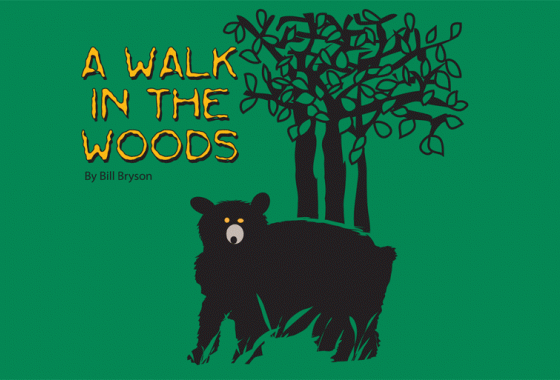It's been sitting on my bookshelf for years, a novel by a favorite travel writer and a recommended read from everyone, including my high school English teacher. Bill Bryson set the stage for my Australian experience in 2009 with In a Sunburned Country and had me audibly exclaiming from his brutal descriptions of small-town life. In this book, Bill attempts to charge through the over 2,100 miles of mountainous footpath called the Appalachian Trail. This is probably as close as I'll come to tackling the trail myself, and through what vehicle would this vicarious journey be better than through the eyes of an underprepared 40+ year-old journalist and his even more underprepared, undermotivated, overweight, formerly alcoholic comrade.
The Storyline
Bryson's curiosity for the intimidating footpath near his home in New Hampshire leads him to its southern-most mouth, alongside former travel friend Stephen Katz. Together - both ill-prepared and facing a steep physical learning curve - they begin the Appalachian Trail with the goal of measuring its entirety with their hiking boots, one pair fresh out of the box.
Sleet meets them at the starting line in Georgia in March, and cold days/nights characterize the setting of their first amusing stories. Juxtaposed with Cut-Corners Katz, Bryson has the determination of an ox, though they both struggle to get their footing under the 70 lb. of equipment on their backs. The hikers meet both section and thru-hikers along the way, and Bryson's comparative descriptions never fail to hit that self-deprecating height of humor that makes him so endearing.
While their weaknesses as hikers are never out of the limelight, they do appear to be achieving great distances along the trail, only until all of us are simultaneously reminded how much more there always is ahead on the AT. Their psychological mindsets are transparent and in deep longing for more northern coordinates, making the vicarious journey even more visceral and realistic for the reader. And not one section of this journey is without a thorough investigation of the AT's history, the surrounding ecosystem, the inhabitants of the region, or another insightful tangent.
Only when isolated in the depths of the forest do they realize thru-hiking is for chumps, and they begin skipping ahead to the sections that most interest them. The final portion - the Hundred-Mile Wilderness in Maine - marks their final stretch together and packs a bit of suspense into the novel's closing pages.
The Bottom Line
It only took me three or four years to settle into this read, and once I did, I wasn't surprised that many people around me were also fans. It sat at the top of my carry-on bag to Thailand and accompanied me on various trips around the country. Its spine called out to my co-workers and students, inspiring their own recollection of stories from the AT - or favored musings from Bryson. I eventually passed it along to inform and amuse another pair of eyes, its hardback presence not at all skewing the minimalist harmony of the chosen backpacker.
Similar to Jon Krakauer in this respect, Bryson creates an experience that allows for human connectivity with his personal narrative while also providing a well-researched background that leaves the reader more knowledgeable than prior to cracking its cover. Clearly, this is a story well-documented in the moment and marinated long after to reach its maturity in concept.
Real-time travel blogging today often lacks the clarity of distant hindsight or the take-away themes and values that growth and humility can infuse into a story. Bryson's book makes me think that in our attempt to tell stories as they happen, we're missing the 'why' in travel, something deeper than to further illustrate how we're all the same. He instead begins the book's recipe with his own experience, the egg that binds a multi-faceted study of humans in nature, and with this narrative the reader is able to put this sort of motive and triumph into a wider context. With this formula, a pilgrimage is as equally introspective and soul-seeking as it is establishing of one's opinion on humanity and the effects of our existence.
This book has been called a modern classic of travel literature. Whether you like hiking or not, it's a good read.
If you're interested in more Nomadderwhere book reviews, visit Good Reads and browse a wide variety of travel narratives and other books. Contact me if you have a book suggestion.
There are affiliate links in this post. I purchased this book.



